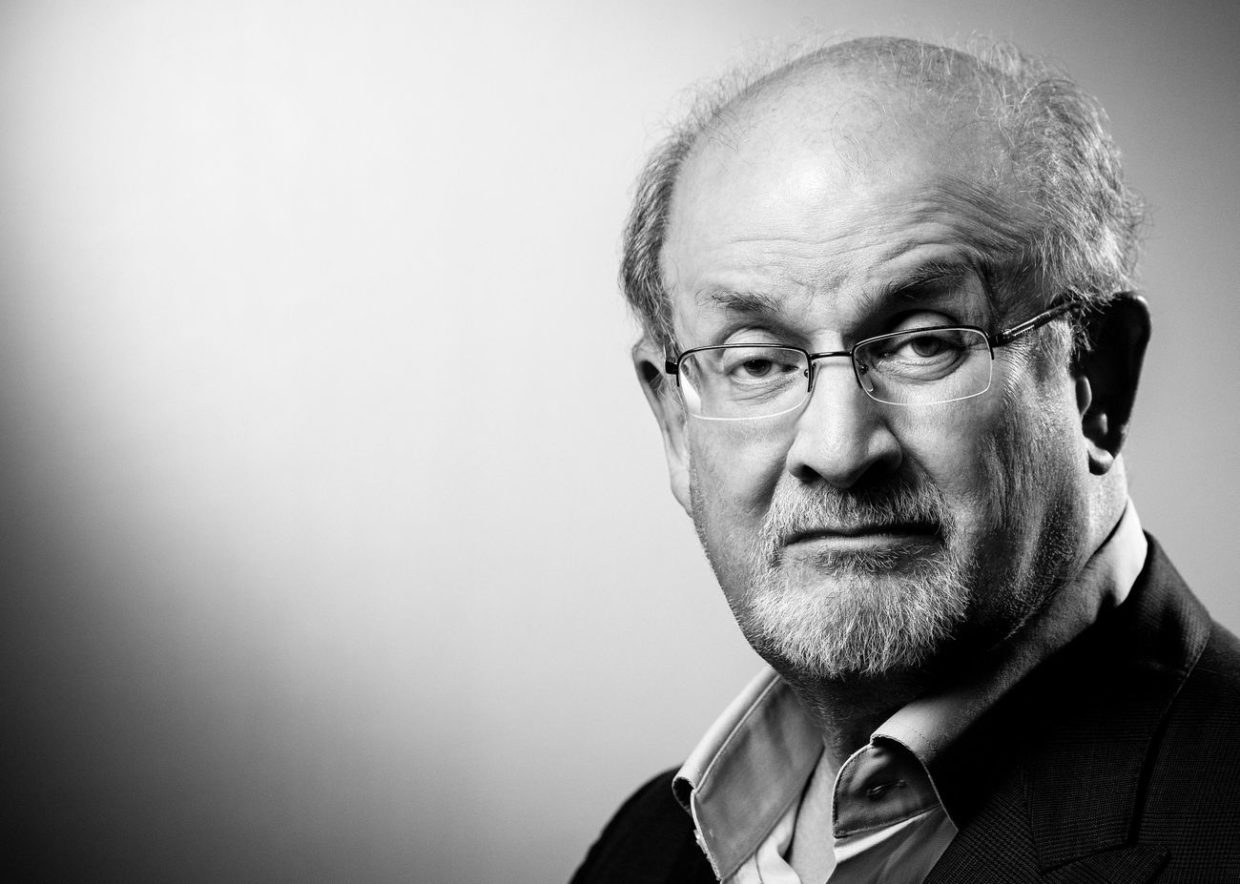Salman Rushdie's Joseph Anton
I haven't been reading much lately, in the sense of looking at words on a page and translating them into images in my own head. However, in lieu of that, my renewed acquaintanceship with audiobooks has substituted nicely. My latest read (or rather latest listen), has been a book on my TBR mound since the year it came it.
The book is Salman Rushdie's 2012 memoir Joseph Anton.
 |
| Source: Literary Hub |
Salman Rushdie is an Indian-British-(and as of 2016) American novelist. His second novel, Midnight's Children, won the Booker Prize for Best Novel in 1981. As of 2019, he's written and published 12 adult novels (his most recent one, Quichotte, appeared this year), two children's novels, one collection of short stories, and four books of non-fiction.
His most notorious novel, however, is his fourth novel, The Satanic Verses, published in 1989. It was this novel's publication which precipitated the most noted and talked-of period in Rushdie's life: the 10-year period in which he lived under threat of a fatwa, and the first few years that immediately followed in which he tried to reclaim his life. For years after this novel came out, even once the threat was declared to no longer be active, journalists couldn't help but bring the subject up, time and again.
 |
| Cover of the First Edition |
The most noticeable element that some might find jarring when they read this book is, despite it being a memoir about the author's life, that Rushdie opted to write the book in Third-Person. When speaking on our lives, people speak in the first-person; therefore, it is natural to think that we would write in the first person. In an interview, however, Rushdie explained that when he began to write the memoir, in first-person, he "didn't like it." Writing in the first-person, using the word I time and again, can eventually sound highly narcissistic--especially if one over-does it. Thus, Rushdie decided to write in the Third-Person.
He isn't the first writer to do this though. Christopher Isherwood wrote his memoir of his years in 1930s Berlin, Christopher and His Kind, largely in the Third-Person. In the case of Joseph Anton, the choice actually works to the book's benefit.
Given the extensive span of time (well over a decade), that the book covers and the nature of the events in that time--Rushdie said he thought of the situation like an international spy-thriller--the viewpoint change give the memoir an almost 19th Century Novel feel. It reads, and listens, to a novel in the vein of Charles Dickens or Anthony Trollope. Additionally, if one accepts the idea that the person you wake up as is never the person you went to bed as ("And I am not who I was," as Stanley Kunitz wrote), talking about a past-self in the Third-Person is, at least poetically speaking, appropriate.
More so though, there is Joseph Anton, himself. As Rushdie explains in the course of the memoir, the name Joseph Anton was a pseudonym devised to give his British Secret Police body guards a code-name to use when referred to him, for the sake of security. It derives from the combined first names of two writers that Rushdie held in high esteem: Joseph Conrad and Anton Chekov. With this pseudonym in place, as you read, it genuinely feels as if you're experiencing the story in real-time, as one would a novel.
The detail, down to the dates, Rushdie gives us, comes down to the copious journals he kept during that decade and change. Through the inclusion of journal entries and clippings from various "news" periodicals, he gives us insight into every setback and inch of gained ground during those years. He goes into detail about both the detractors and supporters he had in the literary world regarding his situation. He details the struggle he had in getting The Satanic Verses published in paperback due to its political football status. He talks of the struggle he had in getting the five volumes he wrote while under threat (Harun and the Sea of Stories, East, West, The Moor's Last Sigh, Imaginary Homelands, and The Ground Beneath Her Feet), published because of the cloud of fear surrounding him
It also, in highly candid language, paints a portrait of the human stress someone in such a situation experiences. In that time, Rushdie underwent a divorce, a marriage, another divorce, and the birth of his second child, among other life-changes, and the strain his situation created through that time shines through in this work. He never winces from it, nor does he attempt to ever justify or excuse any of these events in hindsight. He owns them, just as he owns the rest of his story by putting it on paper.
By the end, the thing Rushdie wanted more than anything was Freedom. The Freedom to live his life the way he wished it, just as he had before, and he wanted the freedom to be himself, warts and all. If a life-story can have a happy ending, the conclusion of Rushdie's life as the eponymous Joseph Anton certainly qualifies.
If you'd like to hear Salman Rushdie talk about this subject in his own words, check out the video below:

